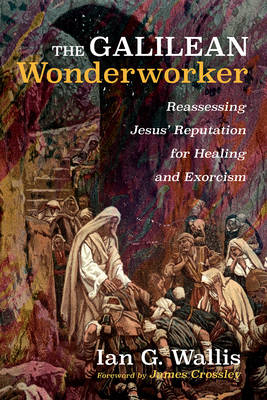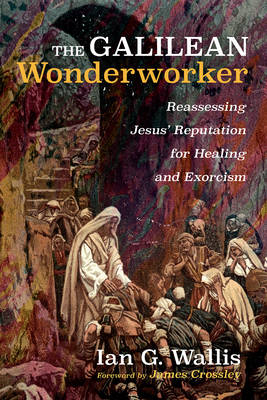
Bedankt voor het vertrouwen het afgelopen jaar! Om jou te bedanken bieden we GRATIS verzending (in België) aan op alles gedurende de hele maand januari.
- Afhalen na 1 uur in een winkel met voorraad
- In januari gratis thuislevering in België
- Ruim aanbod met 7 miljoen producten
Bedankt voor het vertrouwen het afgelopen jaar! Om jou te bedanken bieden we GRATIS verzending (in België) aan op alles gedurende de hele maand januari.
- Afhalen na 1 uur in een winkel met voorraad
- In januari gratis thuislevering in België
- Ruim aanbod met 7 miljoen producten
Zoeken
The Galilean Wonderworker
Reassessing Jesus' Reputation for Healing and Exorcism
Ian G Wallis
Paperback | Engels
€ 44,45
+ 88 punten
Uitvoering
Omschrijving
What are the origins of Jesus' reputation for healings and exorcisms? Few questions in Jesus studies are more hotly contested or elicit more diverse responses. Adopting an interdisciplinary approach and in dialogue with recent scholarly literature, The Galilean Wonderworker offers a compelling account. Recognizing the reciprocal relationship between personal and communal well-being within Israelite faith, this study offers new insights into how sickness and healing were understood in first-century Palestine. This, in turn, supplies the backcloth for a fresh evaluation of the evidence for Jesus' healings and exorcisms, where the emphasis falls firmly upon the dynamics of personal encounter. Jesus emerges as a spirit-person, capable of engendering faith and exercising authority to the extent that sufferers experienced liberation from debilitating symptoms and oppressive behaviors, many of which reflected contemporary sociopolitical conditions. Further, by vesting theological significance in these outcomes, they simultaneously constituted manifestations of God's sovereign presence, signaling restoration of covenantal well-being. Acknowledging that Jesus expected his disciples to heal and exorcize, the investigation concludes with an overview of how this legacy was embraced by the early church--noting how exorcism becomes incorporated into Christian initiation while spiritual healing, though continuing, is eclipsed by pastoral care and conventional medical practice.
Specificaties
Betrokkenen
- Auteur(s):
- Uitgeverij:
Inhoud
- Aantal bladzijden:
- 248
- Taal:
- Engels
Eigenschappen
- Productcode (EAN):
- 9781532675928
- Verschijningsdatum:
- 19/06/2020
- Uitvoering:
- Paperback
- Formaat:
- Trade paperback (VS)
- Afmetingen:
- 152 mm x 229 mm
- Gewicht:
- 367 g

Alleen bij Standaard Boekhandel
+ 88 punten op je klantenkaart van Standaard Boekhandel
Beoordelingen
We publiceren alleen reviews die voldoen aan de voorwaarden voor reviews. Bekijk onze voorwaarden voor reviews.









